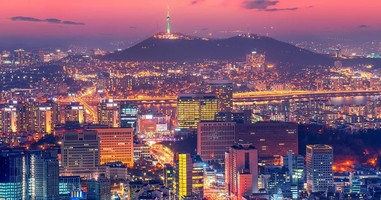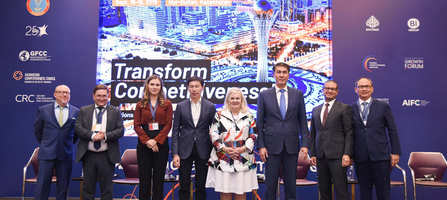
News
Anuar Buranbayev: "We must decide what sacrifices we are ready to make in order to become a developed country"
Elbasy's words that "The real threat is not a fall in prices for mineral resources, but the risk of a decline in the quality of the nation's intellectual potential" - caused a great resonance in society. Exclusive.kz discussed this issue with Anuar Buranbayev, partner of the Research and Consulting Center. He believes that we need to create a country where not only its citizen, but also any person can realize himself. But you shouldn't expect quick victories. At the same time, the intelligentsia has very little chance of succeeding in emigration. Abroad, as a rule, not our brains are needed, but our hands.
- The first president recently uttered the following phrase: "The real threat to us is not a drop in prices for mineral resources, but the risk of a decline in the quality of the nation's intellectual potential." Why do you think he suddenly started talking about it?
- For me, this is not an unexpected impromptu Elbasy. This problem has its own background. In his last message to the people of Kazakhstan as Head of State in October 2018, Nursultan Abishevich linked improving the quality of life with resolving issues in the education sector: investments, the quality of preschool education, educational infrastructure and the quality of teachers. In May 2020, at a meeting of the National Council of Public Confidence, Kassym-Jomart Kemelevich Tokayev made strong emphasis on the state of human capital in the country and continued to focus on the problem of the adequacy and quality of school infrastructure, the level of investment in education, reducing inequality between urban and rural schools, the status and professionalism of teachers. Problems with preschool, vocational and higher education were also discussed there. So, this is a completely verified realization at the level of the state elites that we are not doing well with human capital and, in particular, with education.
What is the reason for this? In my opinion, the slipping of reforms makes us look for reasons. The main idea of the announced third modernization is the transition from a raw material model to a knowledge economy. This requires the emergence of those who can create the knowledge economy. Knowledge is, first of all, people. Therefore, the term human-centeredness is gradually entering the state discourse. I understand the great skepticism in our proto-society about what is said at the top level. But awareness comes. If you remember, last year the First President's Foundation presented a fairly broad study under the slogan: "People First." We have discussed this more than once at different venues. This is all confirmation of the trend that has been set. My position: before doing something, you need to understand the problem and its scale. Realization has come. We need enlightened people who can use, generate and capitalize knowledge.
- It's hard to disagree with this, but there is still reality. During the pandemic, so many schoolchildren switched to overseas educational platforms, which is terrible in itself. But even more tragic is the prohibition of this option by our Ministry of Education and Science. Do you think we should force children and their parents to be patriots at the expense of education?
- In our public discourse, everything is either black or white. I agree with you that the choice by parents of foreign schools, including using online platforms, is their right and their free choice.
Second, with all due respect to the Ministry of Education, if a child and his parents do not connect the future of their child with Kazakhstan, after school he will go to enroll in a foreign university, then the ban does not make sense. Besides, it is not clear how they can control this?
On the other hand, we forget that free primary and secondary education is a constitutional right. I believe that the Ministry of Education should have made it clearer that this requirement concerns the implementation of the constitutional right of citizens. If you apply for free education in accordance with the Constitution of the Republic of Kazakhstan, then free education will be provided only in educational institutions of the country. If you are applying for grants for further higher education in the territory of the Republic of Kazakhstan, you will have to take the UNT (ENT). We have very poor communication between the population and the authorities.
- Yes, indeed, we guarantee everyone free, but not high-quality education. Therefore, the quality of human capital in Kazakhstan has dropped dramatically. What to do about it?
- Solving the problem of quality, people vote with their feet at the secondary education level, choosing private schools for children. At the level of higher education, they are sent to a very limited number of selected universities in Kazakhstan or abroad. What to do about it? This is a question for our entire society, this is our common big problem. In my understanding, the recipe lies on the surface. We need investments in preschool and school education. Investments are not in any individual projects, but in the entire educational system.
In my understanding, the educational system consists of three main components. First of all, this is a teacher, and not just as a transmitter of some information, but a mentor and educator for children, because it is in elementary school that basic concepts of what is good and what is bad are laid down, which then affect values. The second component is the educational infrastructure itself. And the third component is educational content.
Our educational reforms have centered around changing content all the time. We switched to 12-year education, tried to switch to trilingualism, forgetting about the other two components. But gradually an understanding of the importance of all the components comes.
In 2019, a law on the special status of a teacher was adopted and it is already bearing fruit - this year the minimum UNT score for admission to pedagogical specialties was 75 points. This is a fairly high score, for engineering specialties a threshold of 50 points was enough. This suggests that there is a demand for pedagogical specialties. We need to bring best teachers to schools. Without this, the situation will not change.
The second component is educational infrastructure. We have adopted all the standards at the level of laws and bylaws, but they are not being implemented. For example, there is the so-called occupancy rate - 25 students per class. Upon reaching this figure, the class should be divided. However, in fact, up to 40 people can study in one class. The load on teachers is prohibitive and it must be admitted that over the past time a significant part of qualified personnel has been washed out from schools.
In order for the teaching profession to become prestigious, it is not enough to resolve the issue of wages. Normal sanitary and hygienic conditions must be created. The school should become an attractive space: a working space for teachers and an educational space for students.
We have what we have. There will be no quick victories, there are no quick recipes. If now we start investing in school, then perhaps in 10-15 years we will get a generation that will think critically normally, will be able to consciously perceive the world, and will not be driven by some crazy ideas. The generation that is now in schools, if you bring normal teachers, can be corrected - children under 15-16 years old are quite adaptive.
- But the crisis in education is now felt by the whole world, including even advanced countries. Everyone complains about the decline in the quality of the nation's intellectual potential. But this happens along with all the variety and absolute accessibility of information that the Internet provides. Decrease in the quality of intellectual potential with full accessibility and diversity of information? How do you explain this paradox?
- Firstly, not all countries complain. In most developing countries, education is still the number one priority for parents and they do their best. As in the saying "learning is light, not learning is a little light and to work." Look at schools in India, Pakistan, China - they perfectly understand that education is their chance and people are ready for anything to get a normal education. We are used to constantly comparing ourselves with developed countries, but the reality is different. We are a developing country and this is our reality.
Secondly, the developed Scandinavian countries, which we like to refer to, have achieved great success. A striking example of the Finnish model of education. From countries with economies in transition, Poland made significant investments in school education in the mid-2000s and, as a result, today the Polish economy is one of the fastest growing in Europe.
Another thing is that the whole world still lives in the Prussian model of education, which prepared children for the industrial era. I have no experience in teaching at school, but I have 14 years of experience in teaching in higher education, and I see how the quality of students is decreasing even in the master's degree. Those masters who study now and masters who studied 12 years ago are just heaven and earth.
My subjective opinion is that education in developing countries is still the ticket to a better life, which is why most Western universities are filled with applicants from Northeast and Southeast Asia. In the developed world, the situation is different. There is no need to fight for life there, so there is a certain laxity that requires a change in approaches to children, as was done in Finland, or a change in investment in schools, as was done in Poland.
As for the Internet, a lot of information does not mean a lot of knowledge. Most of the information on the internet is garbage. Therefore, the child must be taught certain methods and tools for sorting information and filtering out information garbage. Critical thinking is key to this. Unfortunately, in the Prussian model of education, this was not taught: what was needed was not smart, but obedient.
Another major problem is the loss of so-called “hard” skills. Everyone rushed to develop "soft" skills, forgetting the simple maxim that "soft" skills without "hard" do not mean so much. "Hard" skills are necessary, but not a sufficient condition. If in the industrial era “hard” skills were enough for success in hierarchical and mechanistic systems, today “soft” skills increase the competitiveness and potential of a person if he is doing well with “hard” skills.
- Anuar, as far as I remember, you were a co-author of a study on education. How would you characterize the intellectual elite? There is a common wording that the middle class is made up of knowledge workers. Can you tell us what the middle class is in Kazakhstan?
- Our component was not only about education; it was only part of the study. In our study, we looked for answers to questions related to human mobility and the reasons for mobility, with the moment when human potential turns into capital, how it is related to intelligence and education. Our team came to the conclusion that much lies at the level of value attitudes, on the image of the future that people see for themselves and the expectations that are formed in them .. When there is a gap between these things, people begin to think about the reasons, including looking for others places where their values meet the possibilities of the environment that allow them to realize themselves.
As for the brain drain, this trend is not only happening here. However, it is worth taking an objective look at the process of external migration: the ethnic composition of those leaving, age and direction of departure. This is a quite expected process associated, among other things, with the ongoing demographic changes and growing narratives in society. We came to the conclusion that many representatives of a non-titular nation do not consider Kazakhstan as a country for the life and self-realization of their children. It's hard for me to judge whether this is good or bad in terms of nation-building, but it definitely reduces diversity and human potential.
- But the fact is that over the past two years, Kazakhs have predominated in the structure of migration. That is, if in the early years Russians left, Ukrainians, Germans and so on, now they are Kazakhs as well.
- I have no figures to support your hypothesis. In my understanding, this is all at the level of personal feelings and subjective conclusions. Statistics on departures from Kazakhstan show that Kazakhs consistently make up less than 5% of migrants. Until now, most of these are Slavic ethnic groups leaving for the CIS countries. I looked at the numbers for 2019 and 2020. Our Kazakhs go to study, this is quite normal.
This is not a unique situation. In Singapore, emigration is growing at a tremendous pace: that is, if 18 million people lived in Singapore, then 500 thousand people would leave there. But there are other reasons: very high competition, lack of well-paid jobs, including restrictions on personal freedoms. But all this is balanced by a large flow of incoming migration, mainly labor for low-paid jobs.
- Do you think this is normal?
- I don't think it's normal. In our study, which was called “People First,” we said that in order to increase its competitiveness, Kazakhstan should become a magnet for talent, at least in the region in Central and South Asia. That is, we must not just keep our people, but make sure that talented people come to us. But we are faced with other problems: to what extent are our population ready to absorb newcomers, to what extent are we ready for immigration? This is also an open question. In fact, we are not such a tolerant nation.
- What measures did you propose to make Kazakhstan a magnet for talents?
- According to the latest rating of 2018, Kazakhstan in the region of Central and South Asia was number one in terms of attractiveness for foreigners. It's just that they are a little different from the people we want to see, because we are talking about our neighbors: Afghanistan, Bangladesh, Pakistan.
The second question is how to make the country attractive? Let's ask people why they go to Turkey, Dubai, USA and Russia? There are many reasons, but the main one is income. To make Kazakhstan a magnet for talent, we must provide higher incomes than our neighbors. But how to do that? We again turn to the endless questions of the business climate, the rule of law, respect for human rights, free competition, and so on. It's all interconnected, there are no magic pills.
I am alarmed that in the wake of populist decisions made by the government, the population thinks that all these issues can be solved by some kind of magic or a wizard in a blue helicopter. But that doesn't happen. What should we do? This is not just a question for the government. The first question is for all elites: state, business and intellectual. We must agree on what we are ready to sacrifice now so that in the long term we become more developed. But, if you ask this question to the elites and the population, they do not want to sacrifice anything. The answer will be: there is oil, there is the National Fund, give us everything now.
- Judging by the polls, the main reason for emigration is the lack of opportunities for self-realization in Kazakhstan. Tell me please, have you personally never thought to emigrate? Have you ever been tempted to realize yourself in another country? What keeps you in Kazakhstan?
- For each person, this is very subjective. On a specific occasion, they may say that I deliberately returned to our country, although I had the opportunity to live abroad. But it's too late for me to start all over again. There are a lot of issues of socialization, self-awareness and other things. According to the experience of communicating with our friends from the United States, the most successful were those who have a profession in their hands, not intellectual workers. Workers of intellectual labor during emigration suffer greatly, because intellectual labor implies, among other things, social and cultural capital, which is completely different. Therefore, the first question that people should ask themselves: if I could not take place here, then why can I be there? This is a very good question.
Young people are likely to adapt, but I have also seen a large number of very unhappy immigrants. In the phrase “we need to change the country,” I emphasized not leaving the country, but the fact that something needs to be done so that our country becomes a place where people can realize themselves. Our country should become a place so that our children do not want to leave or, after studying there, want to return. It is very difficult. Our private company works with about eight graduates, including foreign universities, who returned to the country, to whom we gave the opportunity to self-actualize.
all publications











